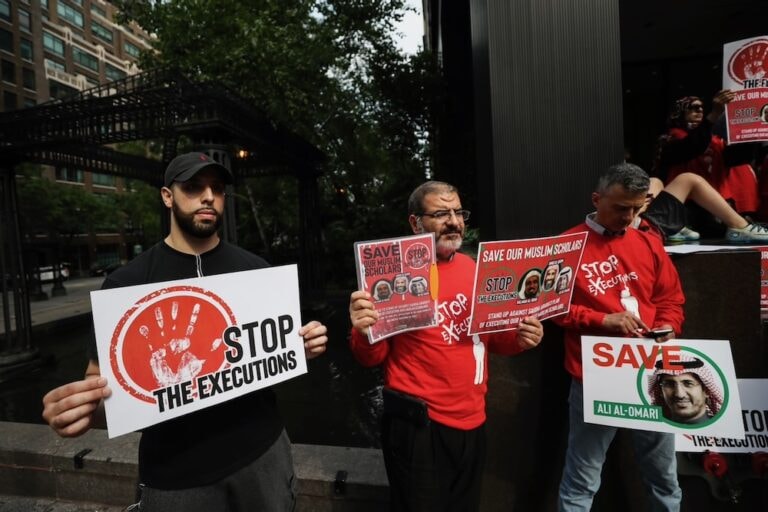(RSF/IFEX) – RSF has condemned the dismissal of “New Straits Times” editor-in-chief Abdullah Ahmad on 21 November 2003, following the direct intervention of Malaysian Prime Minister Abdullah Ahmad Badawi. The prime minister said the editor-in-chief’s dismissal came as a result of a report about Saudi Arabian policies. “This case illustrates Saudi Arabia’s inability to tolerate […]
(RSF/IFEX) – RSF has condemned the dismissal of “New Straits Times” editor-in-chief Abdullah Ahmad on 21 November 2003, following the direct intervention of Malaysian Prime Minister Abdullah Ahmad Badawi. The prime minister said the editor-in-chief’s dismissal came as a result of a report about Saudi Arabian policies.
“This case illustrates Saudi Arabia’s inability to tolerate international press criticism and the submissiveness of Malaysian newspapers towards the government of Abdullah Ahmad Badawi,” the organisation said.
Saudi Arabia often applies pressure to protect its international image. RSF has registered many Saudi attempts to put pressure on governments or news media to apply censorship or self-censorship.
In 2003, the Saudis put pressure on Lebanon to block the broadcast of a report on Saudi Arabia by the NTV television network. The news media and authorities in Yemen often receive threats after the publication of reports criticising Saudi Arabia, and the Saudi government has been calling for a boycott of the Qatar-based Arabic-language television network Al-Jazeera for years.
The “New Straits Times” editor-in-chief was fired without warning by the daily’s management, at the request of the ruling UMNO party, following a complaint by the Saudi ambassador in Malaysia.
The newspaper carried an article on 12 November that criticised the reduction in the Mecca pilgrimage quotas assigned to Malaysia’s Muslim community. “I am not surprised . . . In Malaysian politics, anything can happen,” Abdullah Ahmad told Agence France-Presse. Known by the pen name DKL, Abdullah Ahmad said some of the prime minister’s associates had been trying to oust him for the past year. His contract was only set to expire in October 2004.
On 22 November, Prime Minister Abdullah Ahmad Badawi publicly defended the editor-in-chief’s dismissal, but said the reasons were neither political nor personal. It was thought that the “New Straits Times” article could “cause problems” for Malaysia’s relations with Saudi Arabia and other Gulf states, he said.


